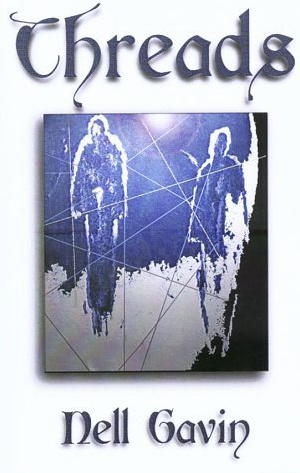

Nell Gavin · 355 pages
Rating: (1.1K votes)
“We are all on the same road, some ahead of us and some behind. We do not always recognize ourselves as being among those who are struggling farther back, and misunderstand, scorn, and even persecute the ones who move ahead of us. History is littered with such as these: eccentrics, geniuses, idealists among those most noticeable. These change the world by force, though the change most often does not take place during their own time, they are so far ahead of it and therefore so rarely understood.”
― Nell Gavin, quote from Threads: The Reincarnation of Anne Boleyn
“What we should see is that there is none among us with nothing to give, and that giving is our purpose.”
― Nell Gavin, quote from Threads: The Reincarnation of Anne Boleyn
“The most seductive sin, I suppose, is passing judgment on others, and the next must be acting out of one's anger when one has the power to hurt the ones who wound us.”
― Nell Gavin, quote from Threads: The Reincarnation of Anne Boleyn
“Each society–each group within each society–chooses something with which to assign inferiority. In China it is the time of birth and the size of feet. In Europe it is the Jews; in England, the Irish. Among the powerful, it is the powerless; among the rich, it is the poor; among the men, it is the women. In this “new” country, that will also be true. In reverse, there is often a vehement hatred by an oppressed group toward the ones it sees as representatives of oppression. The oppressed view their own feelings of contempt as nobler than the contempt they receive, and more justified. They view their own hatred as right and pure. They nurture it, and bequeath it to their children, and sometimes see to it that it is carried on for generations.”
― Nell Gavin, quote from Threads: The Reincarnation of Anne Boleyn
“Calm yourself. Calm yourself . . . ” In time I do, and I move forward.”
― Nell Gavin, quote from Threads: The Reincarnation of Anne Boleyn

“The book doesn't preach; it just offers up another way of looking at life.”
― Nell Gavin, quote from Threads: The Reincarnation of Anne Boleyn
“An English teacher at school once said to her, 'Alice, one thing I hope you never find out is that a broken heart hurts physically.' Nothing she has ever experienced has prepared her for the pain of this. Most of the time her heart feels as though it's waterlogged and her ribcage, her arms, her back, her temples, her legs all ache in a dull, persistent way: but at times like this the incredulity and the appalling irreversibility of what has happened cripple her with a pain so bad she often doesn't speak for days.”
― Maggie O'Farrell, quote from After You'd Gone
“Carefully, she went back up the stairs and found that if she moved along the first landing she would be able to see him from above. Somehow, she thought, if she could look at him, take him in clearly when he was not trying to amuse her or impress her, something would come to her, some knowledge, or some ability to make a decision.”
― Colm Tóibín, quote from Brooklyn
“We walk until there aren't more houses, all the way to the part of the beach where the current makes the waves come in then rush back out so that the two waves clash, water casting up like a geyser. We watch that for a while and then Scottie says, "I wish Mom was here." I'm thinking the exact same thought. That's how you know you love someone, I guess, when you can't experience anything without wishing the other person were there to see it, too. Every day I kept track of anecdotes, occurrences, and gossip, bullet-pointing the news in my head and even rehearsing my stories before telling them to Joanie in bed at night.”
― Kaui Hart Hemmings, quote from The Descendants
“I don’t know anybody. I turn sentences around, and that’s it.”
― Philip Roth, quote from The Ghost Writer
“time is simply an illusion, and the gifted live on,”
― Jamie Magee, quote from Insight
BookQuoters is a community of passionate readers who enjoy sharing the most meaningful, memorable and interesting quotes from great books. As the world communicates more and more via texts, memes and sound bytes, short but profound quotes from books have become more relevant and important. For some of us a quote becomes a mantra, a goal or a philosophy by which we live. For all of us, quotes are a great way to remember a book and to carry with us the author’s best ideas.
We thoughtfully gather quotes from our favorite books, both classic and current, and choose the ones that are most thought-provoking. Each quote represents a book that is interesting, well written and has potential to enhance the reader’s life. We also accept submissions from our visitors and will select the quotes we feel are most appealing to the BookQuoters community.
Founded in 2023, BookQuoters has quickly become a large and vibrant community of people who share an affinity for books. Books are seen by some as a throwback to a previous world; conversely, gleaning the main ideas of a book via a quote or a quick summary is typical of the Information Age but is a habit disdained by some diehard readers. We feel that we have the best of both worlds at BookQuoters; we read books cover-to-cover but offer you some of the highlights. We hope you’ll join us.